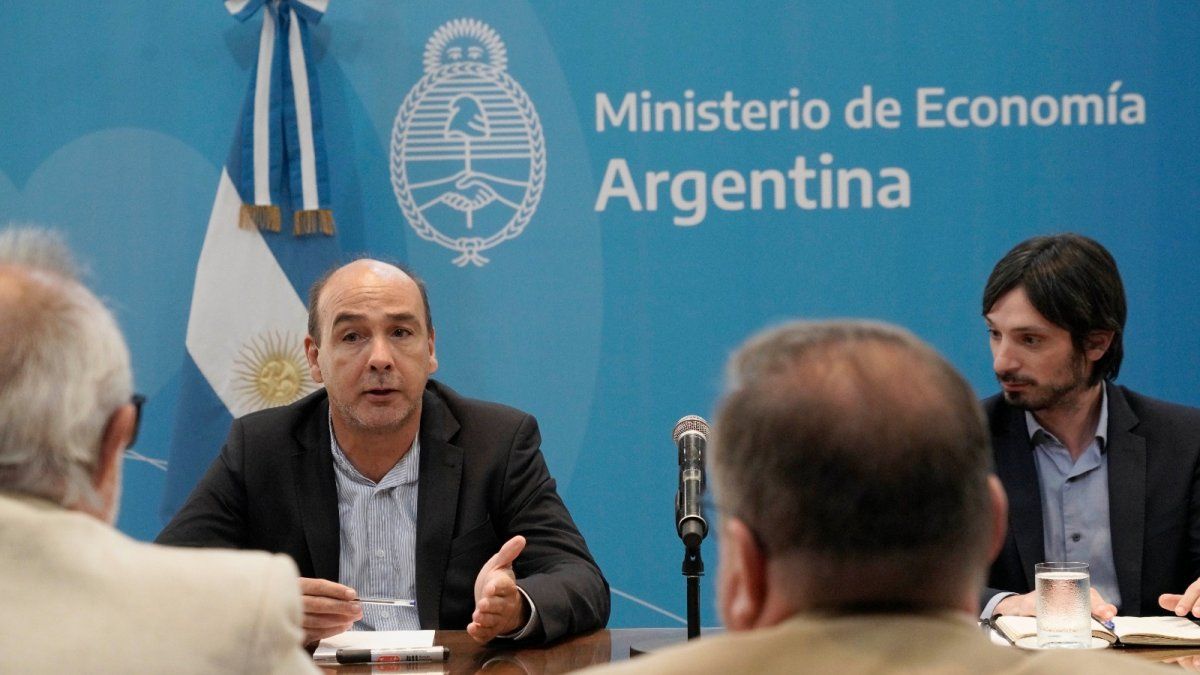In six months, $6.2 trillion in private hands expires. They warn that even with the rollover of banks and other investors it will be necessary for the BCRA to intervene.
The exchange and sale of dollar-denominated bonds in the power of distributions within the State itself would allow the Treasury to obtain financing in pesos equivalent to at least 16% of the total maturities in local currency that remain between April and September in private hands. This is a relief for funding needs in a challenging election year. Although some analysts maintain that, in this framework, the Economy would be forced to ask the Central Bank to participate in the secondary market.
The content you want to access is exclusive to subscribers.
The data correspond to a report prepared by the Institute of Economic Research for the Argentine and Latin American Reality (IERAL), which states that during lThe next six months remain to face commitments for $6.2 trillion. This is the remaining bills that did not enter the debt swap on March 9, plus what continues to be renewed for periods of around three and a half months. A part of the intra-State debt in local currency in the second quarter has already been cleared with this operation, which had a total acceptance level of 58%.


The IERAL maintains that the exchange, as an instrument to obtain financing to attack the fiscal and monetary program, has “little power”. “If it were possible to raise a little more than $1 trillion from the sale of these titles, it must be taken into account that there are still maturities of titles in the hands of the private sector estimated at $6.2 trillion for April-September.” Although it is true that banks and other institutional investors are going to demand bills in pesos based on the positive returns they are leaving, the IERAL report warns that “the participation of the Central Bank in the secondary market of titles in pesos will continue to be necessary.”
In the Finance Departmentled by Eduardo Setti, a maximum of $2 trillion is expected to be obtained from the operation in which the agencies sell their bonds in dollars in local legislation on the market and buy Treasury bills with it.
Even so, the owner of IERAL himself, Carlos Melconian believes that the operation announced by the Palacio de Hacienda will in the long run generate “more issuance” of money. Focusing on the Sustainability Guarantee Fund (FGS), Melconian points out that its earnings are an “accounting entry”. “If I have to pay salaries of $100 and I have income of $100 from the FGS, the fiscal deficit is zero, but the next day you still lack the 100 pesos to pay the salaries,” says the economist, who considers that it is “cheating by playing lonely”.
For LCG, the measure aims to “achieve greater financing in the sense that there is more demand for securities in dollars than for new issues in pesos”, in a context in which the fiscal deficit for the year “possibly exceeds the IMF goal”. Although in Economy they indicate that the exchange will also serve to absorb pesos, the consultancy raises doubts about the effectiveness, and considers that because it is an undemanded currency, it will end up increasing the remunerated liabilities of the Central Bank.
By your side, GMA Capitalestimates that state agencies have US$4,000 million bonds in local legislation dollars (Bonars) that at market values would represent some $1.5 trillion, of which 70% ($1 trillion) is what would finance the Treasury by purchasing dual bonds maturing in 2036. The consultant points out that this will ensure the Government “financing without going directly through the window of the Central Bank.”
Source: Ambito




